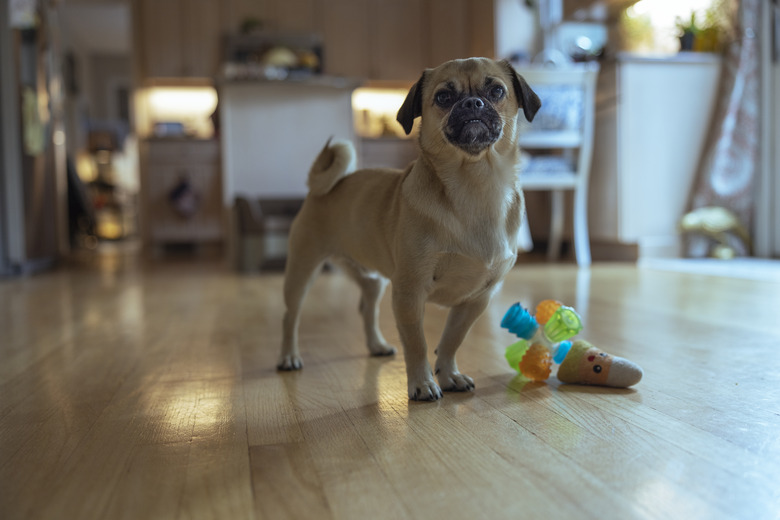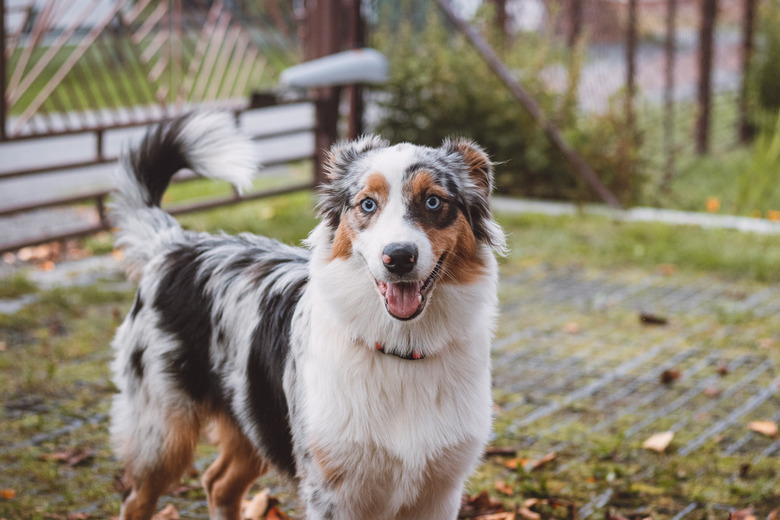Clavamox Dosage For Dogs
While urinary tract infections (UTIs) are fairly common in dogs, they respond quickly to the correct treatment. Veterinarians usually treat mild UTIs with oral antibiotics. One antibiotic they frequently prescribe is Clavamox, the veterinary formulation of the antibiotic Augmentin but for veterinary use. Clavamox is a broad-spectrum antibiotic effective against a broad range of bacterial infections and is very useful in combating bone infections, periodontal infections, skin infections, and E. coli-related UTIs in dogs.
What is Clavamox for dogs?
What is Clavamox for dogs?
Clavamox (amoxicillin trihydrate/clavulanate potassium) is the brand name of a prescription medication with the active ingredients of the antibiotic amoxicillin and clavulanic acid, or amoxicillin/clavulanate.
It was FDA approved and introduced in February 1996 to treat respiratory infections in humans. Pfizer introduced Clavamox in July 1998. Zoetis manufactures Clavamox only for veterinary use in cats and dogs to treat infections caused by gram-positive and gram-negative bacteria.
What is Clavamox used for in dogs?
What is Clavamox used for in dogs?
In dogs, Clavamox is used to treat soft tissue infections and urinary tract infections.
Many bacteria have developed resistance to amoxicillin, a member of the penicillin antibiotic family. Amoxicillin, for instance, is ineffective against germs that produce the beta-lactamase enzyme. Clavulanic acid inhibits production of the B-lactamase enzyme so the amoxicillin can penetrate the cell wall.
Combining amoxicillin and clavulanic acid to produce Clavamox allows the amoxicillin to kill B-lactamase-producing germs, including those responsible for dog urinary tract infections.
Clavamox for dogs: dosage by weight
Clavamox for dogs: dosage by weight
Clavamox dosages are prescribed according to the dog's weight and are usually given for 10 to 14 days. Dogs suffering from E. coli-related UTIs should receive 6.25 milligrams per pound of body weight twice daily. The medicine is available as Clavamox drops or Clavamox chewable tablets. Clavamox drops require refrigeration.
Clavamox tablets come in strips of 14 62.5-, 125-, 250-, and 375-milligram tablets for easier dosing by weight:
- 62.5 mg tablets: 10 lb. dogs
- 125 mg tablets: 20 lb. dogs
- 250 mg tablets: 40 lb. dogs
- 375 mg tablets: 60 lb. dogs
Follow your veterinarian's instructions and these recommended dosage guidelines:
- One strip: one week's worth of dosages
- Missed dose: give it as soon as you remember it
- Don't double dose: If it is almost time for your pet's next dose, just skip the missed dose
How long for Clavamox to work in dogs?
How long for Clavamox to work in dogs?
Most dogs need ten to 14 days of treatment to cure their UTI. A dog should get the full course of medication even if the symptoms are gone. If the infection does not respond within 30 days, however, discontinue the treatment and consult your veterinarian, who may recommend additional diagnostic tests, such as:
- Urine culture
- X-rays
- Ultrasound
It is possible that bladder stones, a bladder tumor, or other underlying causes may be behind the UTI.
Clavamox for dogs side effects
Clavamox for dogs side effects
Nausea, vomiting, and diarrhea are common side effects that may be eased by giving Clavamox with food. Contact your veterinarian in the event of more severe reactions, such as facial swelling, rashes, pale gums, or what appears to be shock or coma.
The side effects of nausea, vomiting, and diarrhea could happen with any penicillin-based antibiotic, including Clavamox. These side effects may go away during treatment, and giving doses with food should help.
- Skin rashes
- Facial swelling
- Pale gums
- Shock
- Coma
These reactions indicate a possible severe allergy to the medication. Seek veterinary help if your dog has any of these reactions. Dog owners who are allergic to penicillin should not handle Clavamox because any contact with the medication is sufficient to trigger an allergic reaction.
Contraindications to giving a dog Clavamox
Contraindications to giving a dog Clavamox
Dog owners who are allergic to penicillin should not handle Clavamox because any contact with the medication is sufficient to trigger an allergic reaction. Other drugs your dog may be taking, like blood thinners (dipyridamole) or inflammation or pain medicine. Tell your dog's doctor about anything they are taking like vitamins or supplements.
The bottom line
The bottom line
Clavamox, the veterinary equivalent to augmentin for humans, is often prescribed to fight urinary tract infections in dogs. While amoxicillin, a form of penicillin, was formerly used to treat UTIs, many bacterial infections have become resistant to treatment with amoxicillin alone. Amoxicillin is ineffective against germs that produce the beta-lactamase enzyme, and Clavamox contains the additional ingredient clavulanic acid, which inhibits production of this enzyme so the amoxicillin can work.


